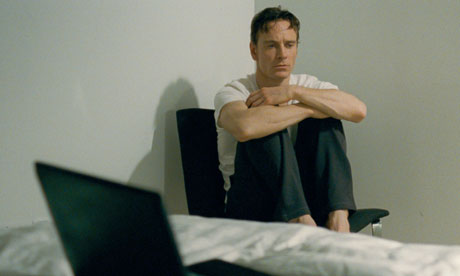
Sex addiction is a dirty phrase in the UK. And yet the acceptable promise of no-strings sex constantly sells papers, TV shows, cars, houses, food and anything remotely linked to half-clad beauties offering us the world – and all we end up with is a lust for more. The general attitude to sex addiction is that of a dirty joke, an issue that is not treated as a serious problem. Despite the evidence of an epidemic of sex-related diseases, societal problems, marriage breakdowns and family dysfunction, we prefer to take the stiff upper-lip approach; to keep calm and carry on.
I have been recovering from cross addiction for more than 23 years. It took many years to unravel and heal, and I needed a lot of support and love and understanding. The biggest hurdle for any addict to overcome is the debilitating and highly destructive state of denial. The inability of individuals to face up to their addiction to sex stops them from realising they actually have a problem. In the course of my journey, I have experienced and witnessed massive emotional dysfunction, the loss of jobs, relationships, family breakdown and imprisonment. This is painfully and brilliantly portrayed by Michael Fassbender's character, Brandon, in Shame.
I've been trying to raise awareness of the sheer scale of sex addiction in this country for many years. It's taken Shame, a powerfully bleak and unremitting film by acclaimed director Steve McQueen, to finally put it on the media map.
McQueen and Abi Morgan (writer of The Iron Lady and BBC2's The Hour) co-wrote Shame after McQueen's realisation that this was a story that deserved an audience. In an interview with McQueen this week he said: "No one was talking about it. It was a story screaming to be told. It is an extraordinarily important issue."
Unfortunately, McQueen came across the same blocks as I had in this country and was forced to do his research in New York, where the film is set. It seems that in England the core emotion at the root of sex addiction – the debilitating feeling of shame – was preventing people from talking about it.
Sex addiction is adding an untold burden to the NHS, police and social service budgets all dealing with its knock-on effects – crime and societal breakdown. It is said that $89 per second is spent on porn. Some may argue that looking at pornography does not immediately qualify you as a sex addict. Maybe not, but I have yet to meet anyone who puts across a convincing argument for the safe and harmless use of porn. Simply put, engaging in porn is about stimulating an otherwise empty or lacklustre sex life; it's about dissatisfaction and a soulless triggering of adrenaline to feed the need for more. If you consume porn, you are already buying into and supporting a multibillion dollar addiction industry that perpetuates the abuse, victimisation and objectification of vulnerable individuals. Surely this alone indicates a serious, behind-closed-doors problem of epidemic proportions, whether an individual believes they are addicted or not?
Alcoholism and drug addiction are now recognised worldwide as illnesses that can be treated. Sex addiction is different in only one respect; we can live as functioning healthy human beings without drugs and alcohol, but most of us need to engage in sex at some level to live as healthy adults in a relationship. But for those of us who struggle with "normal" sex lives, attitudes to sex addiction today are where they were for alcoholism 50 years ago, with health professionals attempting to deny the existence of sex as an addiction to boot. David Ley, a psychologist writing in the Sunday Telegraph, holds the single-minded view that there simply isn't a problem. As McQueen succinctly puts it: "People saying that there is no such thing as sex addiction is like saying the world is flat. It's a nonsense."
The pornification of so much of today's media is a clear indicator of how out of control the problem is. The fully clothed housewife that sold household products in the 60s has been overshadowed by the images of semi-naked sensual gods offering us a world of sex. As multimedia platforms push boundaries further and further, we have sadly been drawn to want more and more sex, buying a lifestyle that is damaging society.
• This article was amended on 25 April 2012 to remove a phrase referring to sex addiction which was added during the editing process.

